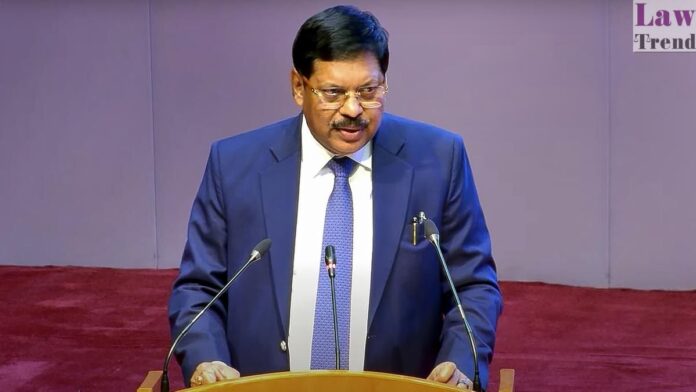Chief Justice of India (CJI) BR Gavai on Tuesday described the Indian Constitution as a “quiet revolution etched in ink,” emphasizing its transformative role in uplifting historically marginalised communities. Speaking at the prestigious Oxford Union on the theme “From Representation to Realization: Embodying the Constitution’s Promise”, Justice Gavai, the second Dalit and first Buddhist to occupy the country’s highest judicial office, recounted his personal journey as a testament to the power of constitutional justice.
“Many decades ago, millions of citizens of India were called ‘untouchables’. They were told they were impure. They were told that they did not belong. But here we are today, where a person belonging to those very people is speaking openly, as the holder of the highest office in the judiciary of the country,” said the CJI, drawing applause.
He described the Constitution not just as a legal framework but as “a feeling, a lifeline,” especially for the most vulnerable citizens. Reflecting on his own rise from a municipal school to the apex of the Indian judiciary, he said, “It has been a guiding force.”
‘A Social and Moral Document’
Justice Gavai underscored that the Constitution was crafted in an environment of deep inequality and that its drafters included representatives from historically excluded communities — Dalits, Adivasis, women, religious minorities, and persons with disabilities.
“The Constitution is a social document, one that does not avert its gaze from the brutal truths of caste, poverty, exclusion, and injustice. It dares to intervene, to recalibrate power, and to restore dignity,” he said, calling it the “heartbeat of those who were never meant to be heard.”
He emphasised that the Constitution imposes not only a duty to protect rights but also to “uplift, affirm, and repair” the damage caused by centuries of discrimination.
Ambedkar’s Vision and Social Democracy
Paying tribute to Dr B.R. Ambedkar, the CJI quoted from the latter’s landmark 1949 Constituent Assembly speech: “Democracy cannot last unless there lies at the base of it social democracy.”
Justice Gavai elaborated that Ambedkar saw political representation not merely as a democratic formality but as a tool to dismantle caste hierarchies and restore social dignity.
“In an unequal society, democracy cannot survive unless power is also divided among communities, not just among institutions,” the CJI said, framing representation as a mechanism of redistributing power to long-marginalised social groups.
Affirmative Action and Judicial Milestones
Highlighting the evolution of affirmative action, the CJI pointed to the Mandal Commission judgment as a reaffirmation that reservations and quotas are not contradictions of equality but a fulfilment of its promise.
Quoting legal scholar Upendra Baxi, he said the Constitution places a duty of care on the State “to achieve equality both in letter and in spirit.”
Justice Gavai also referred to landmark rulings like:
- NALSA v. Union of India (2014): Recognising transgender rights;
- Permanent commission for women in armed forces (2020);
- Judicial mandates for reasonable accommodations for persons with disabilities;
- And the 2023 constitutional amendment guaranteeing political reservations for women in legislatures.
He further referenced the Supreme Court’s recent endorsement of sub-classification within Scheduled Castes to address intra-group inequality.
‘A Constant Process of Renewal’
“In Indian democracy, even as we commemorate 75 years of the Constitution, we continue to reflect, renew, and reimagine how to deepen and expand the meaning of representation,” Justice Gavai concluded.
His address struck a powerful note on the enduring spirit of the Constitution — not as a static document, but as a living instrument enabling justice, equity, and dignity for all.




